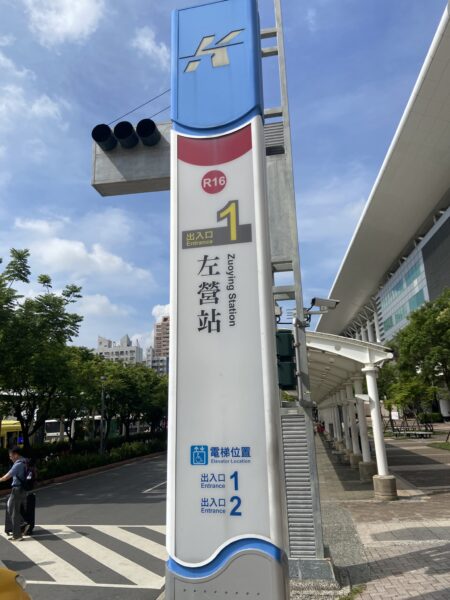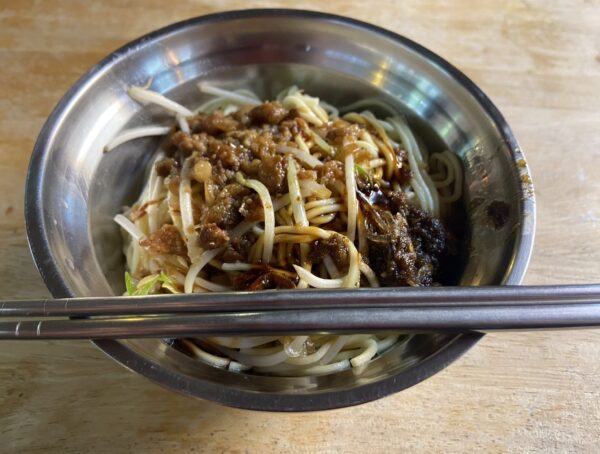又々今回も台湾出張のお話
今回は番外編
予期せぬトラブルに遭遇したお話
私は海外出張の際には必ず2枚のクレジットカードを持って出ます。
ネットショッピング系の会社が発行するカードで、1枚目のカードは現地での買い物・食事や乗り物・宿泊代など、カード決済ができるものは全てこのカードを利用し現金は極力使用しません。
そして、2枚目のカードはキャッシングの枠が付加されており、現地でカードが使えない場合に備えて必要最低限の現金を引き出します。
不慣れな現地通貨は必然的に札を優先的に使ってしまい、小銭が増えて最後は使い切れず、両替もできずに持ち帰ることになるので、いつの間にかこのスタイルになりました。
翌日の早朝に新幹線で高雄までの移動を控えた出張3日目、私は台北に滞在しており、夜の10時前にホテル近くの銀行ATMで現金を引き出すために2枚目のカードを使って手続きを行いました。しかしカードが機械に取り込まれたたまま戻って来ず、現金も出てこない事態に!! エラーメッセージが出るわけでもなく、警告音が鳴るわけでもなく・・・
予期せぬ突然の出来事にATMの前で固まってしまいました。
このATMを併設している銀行の店舗は営業していないし、ATMに記載されている電話番号に電話をかけたところで言葉が通じないし、翌日は朝7:30の新幹線を予約しており、夕方まで高雄でのスケジュールは詰まっている為、翌朝にこの銀行の開店時間に立ち寄ることができない。
それよりもカードが、ATMに取り込まれた状況でその場を離れていいものか??
この場を離れた間にカードが戻ってきたらたらどうしよう? その間に誰かがそのカードを持ち去って悪用されたらどうしよう?
色々考えるとさらにその場から立ち去ることができず、何を考えても答えが見つからず、何かヒントがないものか?と考えて通訳さんへ電話を入れて事情を伝えました。
すると通訳さんも韓国で同様のトラブルに遭遇したご経験があるそうで下記のアドバイスをいただきました。
まずはATMに取り込まれたカードは即座に止める、そして翌朝にカード会社のカスタマーサポートへ連絡を入れて、止めたカードのキャシングの枠を1枚目のカードへ移行する手続きを行うというものでした。本人確認ができれば緊急時に最低限のキャッシング枠を割り当ててもらえる可能性があるということでした。
ダメ元で人に聞いてみることは大切、そして経験はすごいと改めて思いました。
早速その場で即座にカードを止めて一安心
そして通訳さんはその後、アプリのリンクを送ってきてくれたのが ”55688” という台湾のタクシーの配車アプリでした。このアプリで配車されるタクシーは100%カードが利用可能とのことで非常にありがたい情報提供で、親切心に本当に感謝です。
しかしながら、私が利用しているカード会社がそのキャッシング枠を移すことに柔軟に対応してくれるかどうかがその時点では不明なので、最悪のケースを想定して、今持っている手持ちの現金と帰国までに必要であると想定される現金をネットで調べました。手持ちの金額は1100元(5000円)位でしたが、不測の出費がなければ何とか持ちこたえるか??というレベルの金額です。
翌朝、新幹線に乗って高雄まで移動し旅行代理店さんに手配していただいた通訳さんと無事合流。

高雄の左營駅からお得意先まで向かう途中のタクシーの中でカード会社のサポートデスクに電話を入れ、昨夜にカードを止めたことを伝えて2枚目のカードにキャッシング枠の一部を移行してほしい旨を伝えたところ、カード会社の方針で複数のカードを発行しているアカウントに対してキャッシング枠は1枚のカードにしか付与できないとの回答、つまりキャッシング枠の移行は不可という回答でした。移行をするなら昨夜に止めた2枚目のカードの再発行手続きも停止してカード自体の契約を解除すれば移行は可能ということでした。想定していた最悪のケースですが、必要とされる金額も事前に計算しておいたので動揺せず(笑)
この会話を聞いていた通訳さん 初対面で駅でお会いしてからタクシーに乗車しほとんどコミュニケーションがないにもかかわらず「現金が必要であれば使われますか?少しならありますよ」と突然信じられないご親切が。
もちろんそのご親切に甘えることなく、お気持ちだけはありがたく頂戴して丁重にお断りをしましたが。
この日一緒に仕事をしてコミュニケーションを取っていく中でこの通訳さんが日本人に対する信用度や敬意・親切心が非常に高いということが理解できました。
この通訳さん、東日本大震災の時も個人としては結構な金額を被災地へ寄付されたそうです。通訳さん曰く困っているところに寄付をするのは当たり前の感覚のようで、そのご友人も同じだそうです。
我々もニュースを通して様々な災害を目にしますが、”悲しい”とは思ってもそこから先のアクションに起こすことはめったにありません。
今回の台湾出張で予期せぬトラブルから知った台湾の方の親切心
今までより少しだけ深く台湾の方のことを知ることができました。
そして翌日に台北の空港で財布に残っていた現地通貨は400元(1800円)位でなんとか持ちこたえることができました。
それでは今回はこの辺で
余談

帰国前日 ホテル近くの屋台で食べた台湾まぜそば 45元(210円)
円安とはいえども台湾の物価は安いです。
——————————————————————————————————————
In business in Taiwan Part 3
• 2024.10.04
Once again, a story about a business trip to Taiwan
This issue is an extra edition.
Stories of unexpected problems encountered
I always take two credit cards with me when I travel abroad.
They are issued by an online shopping company, and the first card is used for local shopping, meals, transportation, lodging, and all other items that can be paid for with the card, and cash is used as little as possible.
The second card then has a cash advance facility added to it to withdraw the minimum amount of cash required in case the card is not accepted locally.
I somehow came to this style because I would inevitably spend unfamiliar local currency in preference to bills and end up with more small change that I could not use up and could not exchange and take home with me.
On the third day of my business trip, I was staying in Taipei before taking the bullet train to Kaohsiung early the next morning. I used my second card to withdraw cash at a bank ATM near my hotel before 10:00 pm. However, the card was not returned to the machine and no cash came out! No error message, no warning beep…
I froze in front of the ATM because of the unexpected and sudden event.
The bank branch that houses this ATM is not open for business, and when I called the phone number on the ATM, I could not understand the language, and since I have a 7:30 a.m. bullet train reservation for the next day and my schedule in Kaohsiung is packed until the evening, I could not stop by this bank the next morning during its opening hours.
More importantly, can I go away from the ATM in a situation where the card has been taken into the ATM?
What if the card comes back while I’m gone? What if someone takes the card while I’m gone and misuses it?
Thinking about it all, I couldn’t walk away from the situation, and no matter what I thought, I couldn’t find an answer. Finally, I called the interpreter and told him what was going on.
The interpreter also had similar experience in Korea and gave me the following advice.
The first step was to immediately stop the card taken at the ATM, and then contact the card company’s customer support the next morning to transfer the cashing limit on the stopped card to the first card. If the identity could be verified, there was a possibility that a minimum cash advance limit could be assigned in an emergency.
I was reminded once again that it was important to ask people whether or not you can do it was another matter, and that experience was amazing.
I immediately stopped the card on the spot instantly and felt relieved.
The interpreter then sent me a link to an app called “55688”, which is a Taiwanese cab dispatch app. I really appreciate the kindness of him providing this information. 100% of the cabs dispatched by this app accept credit cards.
However, at that point, I was not sure if my credit card company would be flexible about transferring the cash advance limit, so I went online to find out how much I expected to need before returning home comparing with how much cash I had on hand, assuming the worst-case scenario. The amount of money I had on hand was about 1,100 yuan (5,000 yen), which I thought would be enough to get by without unexpected expenses. I am not sure if I will be able to survive without unforeseen expenses.
The next morning, I took the bullet train to Kaohsiung and met up safely with the interpreter arranged by the travel agency.

I called the support desk of the credit card company in a cab on the way from Zuoying station in Kaohsiung to my client’s office and told them that I had stopped my card last night and that I wanted to transfer part of the cash advance limit to the other card, but the card company’s policy is not to do that to an account issued multiple cards. If I wanted to transfer, I would have to stop the reissue process for the second card, which I stopped last night, and cancel the card itself. This is the worst-case scenario I had assumed, but I had calculated in advance the amount of money I would need, so I was not upset (lol).
The interpreter who was listening to this conversation, although we had barely communicated after meeting at the station for the first time and getting into the cab, he asked me, “If you need some cash, would you like to use it? I have some.” Suddenly, he was incredibly kind.
Of course, I did not take advantage of his kindness and politely declined his offer.
As we worked together and communicated on this day, I understood that this interpreter had a very high level of trust, respect and kindness toward Japanese people.
This interpreter donated a considerable amount of money as an individual to the disaster area at the time of the Great East Japan Earthquake. According to the interpreter, it is a common practice to donate to those in need, and his friend is no different.
We also see various disasters in the news, and although we may feel “sad,” we seldom take action.
The kindness of Taiwanese people I learned through unexpected trouble on this business trip to Taiwan.
I was able to learn about the Taiwanese people a little more deeply than before.
The next day at the airport in Taipei, I had about 400 yuan (1,800 yen) of local currency left in my wallet and managed to hold on to it.
Well, that’s about it for this issue.
As a side note,

the day before returning to Japan, I ate Taiwanese mazesoba noodles at a food stall near my hotel for NT$45 (¥210).
Even with the weak yen, prices in Taiwan are still cheap.




